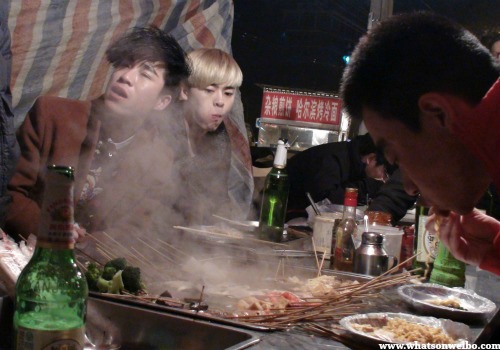The common expressions
冷静 (lěngjìng)
冷静 means “calm down” or “stay calm” and is used to tell someone to stay composed in a stressful or emotional situation.
e.g.
请冷静一下,别冲动。 (Qǐng lěngjìng yíxià, bié chōngdòng.) Please calm down, don’t act impulsively.
面对问题,我们要冷静思考。 (Miàn duì wèntí, wǒmen yào lěngjìng sīkǎo.) When facing problems, we need to think calmly.
他需要时间冷静下来,做出正确的决定。 (Tā xūyào shíjiān lěngjìng xiàlái, zuò chū zhèngquè de juédìng.) He needs time to calm down and make the right decision.
冷静!大吼大叫是没用的。(Lěngjìng! Dà hǒu dà jiào shì méi yòng de.)Calm down! Yelling is useless.
The extended phrases to express “calm down” in Chinese
别慌 (bié huāng)
This phrase means “don’t panic” and is used to tell someone to stay calm, especially in urgent or stressful situations.
e.g.
出了问题也别慌,我们能解决。 (Chū le wèntí yě bié huāng, wǒmen néng jiějué.) Don’t panic even if there’s a problem, we can solve it.
听我说,别慌,慢慢来。 (Tīng wǒ shuō, bié huāng, mànmān lái.) Listen to me, don’t panic, take it easy.
有医生在这里,别慌! (Yǒu yīshēng zài zhèlǐ, bié huāng!) There’s a doctor here, don’t panic!
静下来 (jìng xiàlái)
It means “calm down” or “settle down.” It can refer to both calming down emotionally and quieting down physically.
e.g.
他终于静下来了,不再那么生气了。 (Tā zhōngyú jìng xiàlái le, bù zài nàme shēngqì le.) He finally calmed down and is no longer that angry.
让我们静下来,好好谈谈。 (Ràng wǒmen jìng xiàlái, hǎohǎo tán tán.) Let’s calm down and have a good conversation.
稳住 (wěn zhù)
稳住 means “stay calm” or “stay steady,” and is used to encourage someone to remain composed in challenging situations.
e.g.
稳住,我们一定能成功。 (Wěn zhù, wǒmen yīdìng néng chénggōng.) Stay calm, we will definitely succeed.
你现在需要稳住情绪。 (Nǐ xiànzài xūyào wěn zhù qíngxù.) You need to calm down and control your emotions now.
比赛中要稳住,不要慌乱。 (Bǐsài zhōng yào wěn zhù, bùyào huāngluàn.) Stay calm during the game, don’t panic.
平静一下 (píngjìng yíxià)
It means “calm down” or “settle down,” often referring to calming down emotionally or mentally.
e.g.
你需要平静一下,理清思路。 (Nǐ xūyào píngjìng yíxià, lǐ qīng sīlù.) You need to calm down and clear your thoughts.
我们都平静一下,然后再讨论。 (Wǒmen dōu píngjìng yíxià, ránhòu zài tǎolùn.) Let’s all calm down and then discuss it.
他很生气,需要时间平静一下。 (Tā hěn shēngqì, xūyào shíjiān píngjìng yíxià.) He’s really angry and needs some time to calm down.
别着急 (bié zháojí)
It means “don’t worry” or “don’t rush,” often used when someone is anxious or panicking, encouraging them to calm down.
e.g.
别着急,一切都会好的。 (Bié zháojí, yīqiè dōu huì hǎo de.) Don’t worry, everything will be fine.
遇到问题时,先别着急,冷静分析。 (Yù dào wèntí shí, xiān bié zháojí, lěngjìng fēnxī.) When you encounter problems, don’t panic, calmly analyze them.
放松 (fàngsōng)
This word means “relax” or “calm down,” and is often used when someone is physically or mentally tense.
e.g.
别紧张,放松点。 (Bié jǐnzhāng, fàngsōng diǎn.) Don’t be nervous, calm down a bit.
放松点,别想太多。 (Fàngsōng diǎn, bié xiǎng tài duō.) Relax, don’t overthink it.
The post Various ways to say “Calm down” in Chinese appeared first on .


